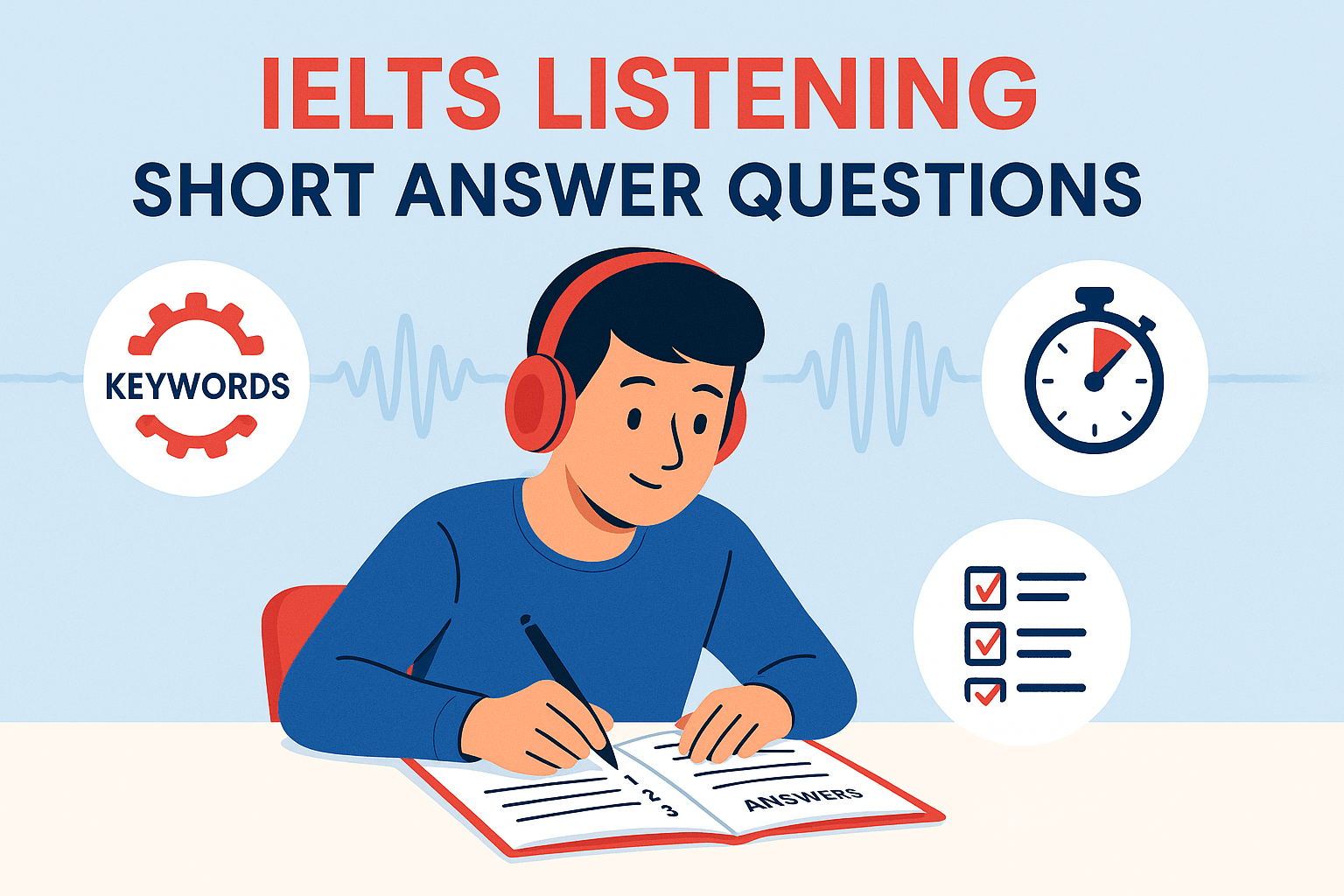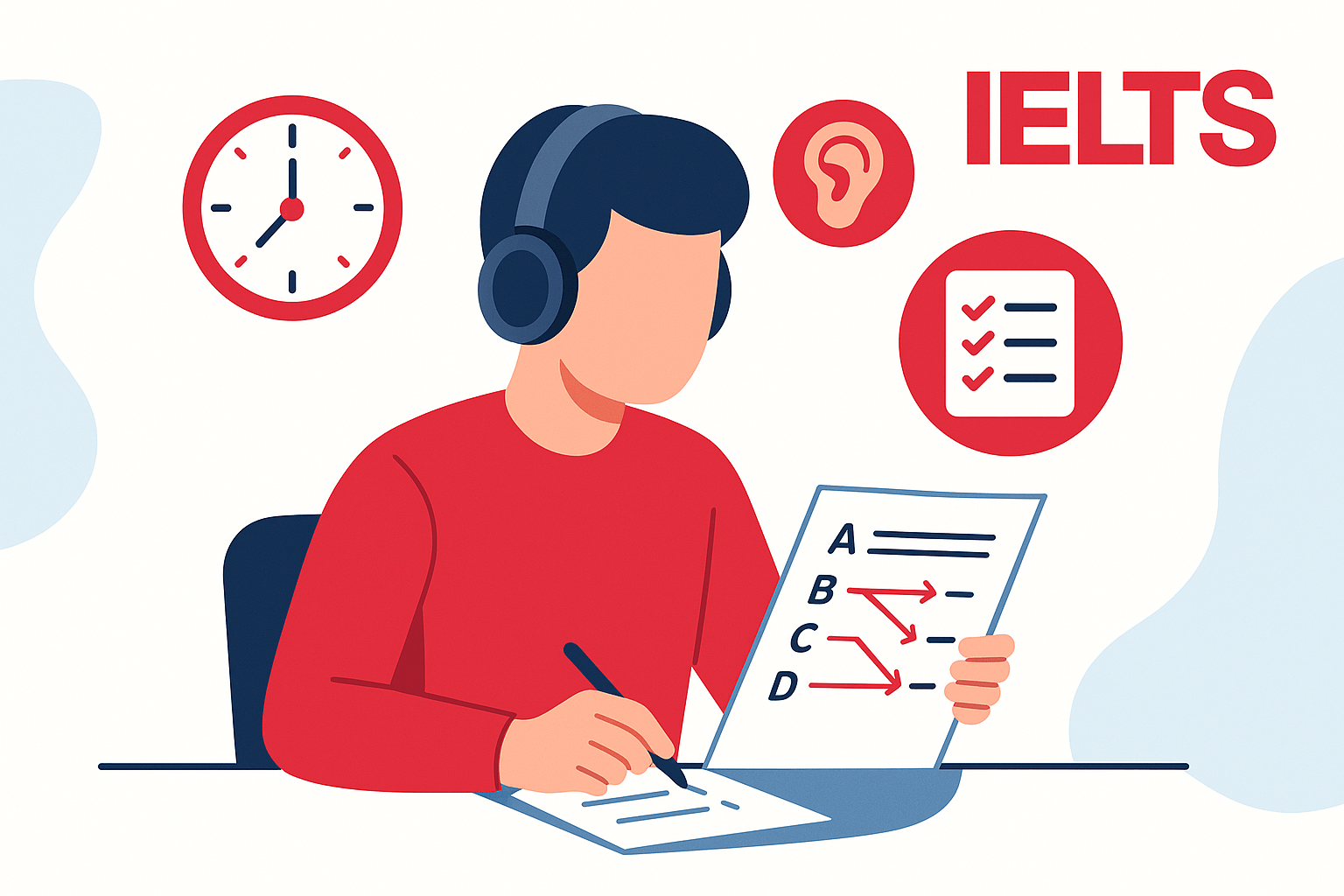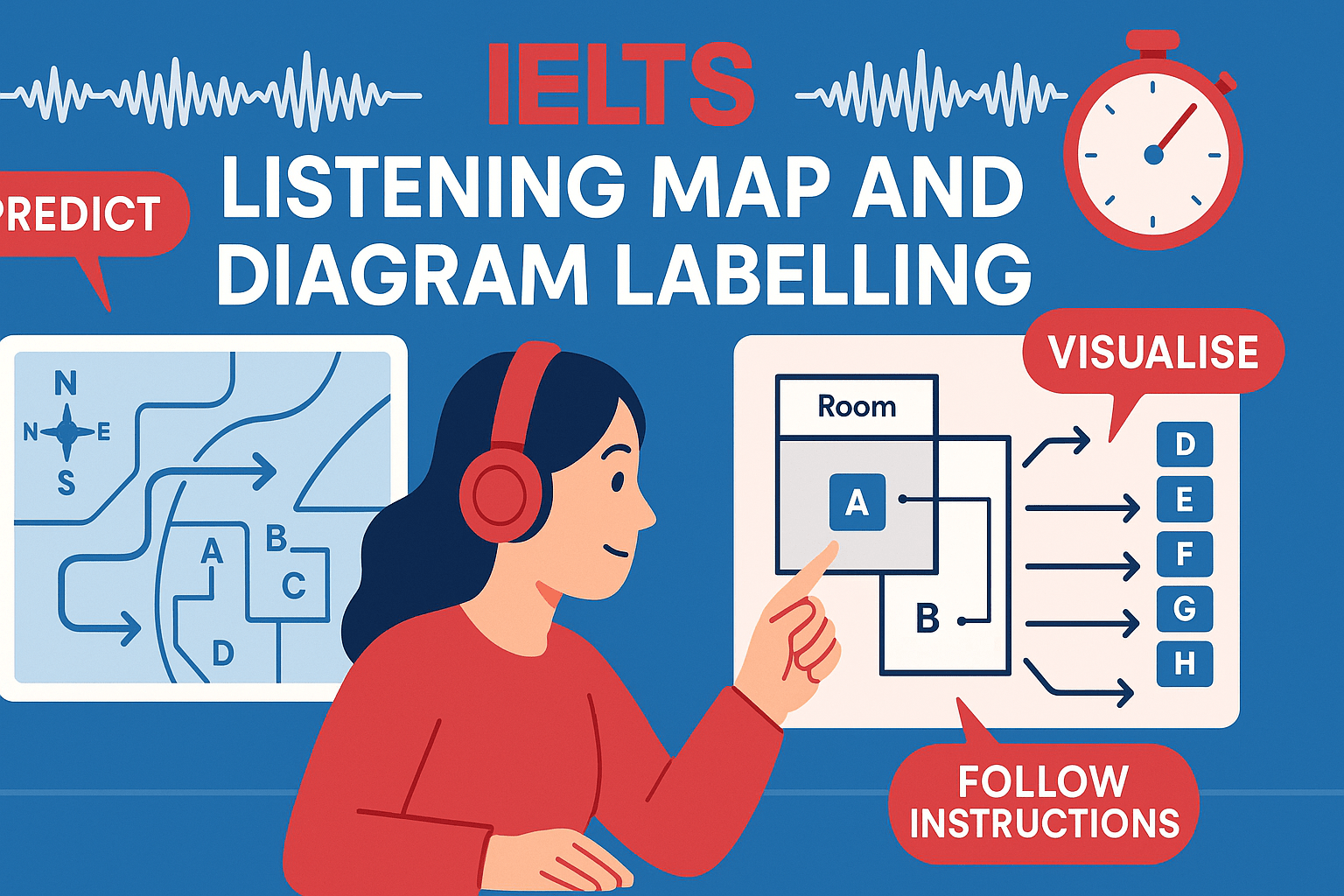- Why These Listening Skills Matter
- The Role of Keywords in IELTS Listening
- Paraphrasing: Your Best Listening Companion
- Building a Synonym Bank for Listening
- How to Practise Listening for Keywords
- Common Mistakes Learners Make
- Combine Your Skills for Maximum Success
- Final Thoughts
- FAQs: Listening for Keywords in IELTS
As an international IELTS teacher, one of the most common struggles I see in my students is listening for keywords effectively during the test. Many learners lose marks simply because they fail to catch a synonym or a reworded version of the question. That’s why in this guide, I’ll walk you through practical methods to sharpen your listening for keywords, paraphrasing, and synonyms — three essential skills for securing a Band 7–9 in IELTS Listening.
Why These Listening Skills Matter
If you’re aiming for a high IELTS band score, it’s not enough to just hear the words — you need to understand how they’re transformed. The IELTS Listening test often rephrases questions using synonyms or paraphrased expressions. So, if you’re not listening for keywords and their variations, you’re likely to miss the correct answers even when you hear them.
I’ve had students tell me, “But the word wasn’t in the recording!” That’s the trap. The test rarely uses the exact words from the question. Instead, it challenges your ability to match meaning — and that’s exactly what we’ll master in this guide.
The Role of Keywords in IELTS Listening
Keywords are the anchor points of every IELTS Listening question. They guide your attention and help predict the type of information you should listen for. But here’s the trick — the audio often replaces those exact keywords with synonyms or paraphrases.
Real Example:
In one listening test, the question said:
“What is the main reason for visiting the library?”
But in the audio, the speaker said:
“I go there primarily to study in a quiet place.”
Here, main reason became primarily, and visiting the library became go there. Unless you’re actively listening for these variations, it’s easy to miss the answer.
Paraphrasing: Your Best Listening Companion
Paraphrasing isn’t just a writing skill — it’s vital for listening too. IELTS speakers often use different sentence structures or vocabulary to express the same idea.
Student Struggle:
A learner of mine once failed a question where the option said “transport costs,” but the speaker mentioned “money spent on commuting.” Without paraphrasing awareness, it didn’t click.
Pro Tip:
While preparing with practice tests, take note of how the question is phrased and compare it with the words used in the audio. This habit will train your brain to anticipate paraphrases.
Building a Synonym Bank for Listening
Many students ask, “How do I know which synonyms to expect?” While you can’t predict every variation, building a bank of common synonyms is an excellent start.
Here are a few from my personal student list:
| Keyword | Possible Synonyms in Audio |
|---|---|
| Important | Essential, significant, crucial |
| Start | Begin, launch, initiate |
| Cheap | Inexpensive, low-cost, affordable |
| Job | Occupation, profession, role |
I encourage all my students to review vocabulary lists while listening to recordings. Try some from IELTS.org and IDP IELTS to ensure you’re learning words that align with official test formats.
How to Practise Listening for Keywords
Now let’s get practical. Here’s a technique I give my students during our IELTS premium sessions via Courseline:
- Read the question first and underline keywords.
- Predict synonyms or rewordings for those keywords.
- Listen actively — not just for the exact word, but for the idea behind it.
- Write quickly and accurately — focus on meaning, not copying the sentence.
You can develop these skills effectively by reviewing real IELTS Listening formats. Start with this Band 7–9 Listening Guide and then move to deeper skill-building in this strategy post.
Common Mistakes Learners Make
Through years of coaching, I’ve noticed repeating patterns:
- Mistake #1: Listening for the exact word from the question.
- Mistake #2: Ignoring the context of the question.
- Mistake #3: Not reviewing incorrect answers to identify paraphrasing patterns.
Solution: After every test, review not just what you got wrong, but why. Did the audio use a synonym you didn’t expect? Was the structure different?
Combine Your Skills for Maximum Success
The best listeners in IELTS don’t treat keywords, paraphrasing, and synonyms as separate skills — they combine them seamlessly. It becomes second nature to expect variation, to link ideas, and to spot patterns in meaning.
Just like my student Riya from India, who went from Band 6 to Band 8 in just four weeks — once she started identifying keyword synonyms and paraphrased expressions, she stopped second-guessing herself and started scoring consistently high.
Final Thoughts
Listening for keywords is not just about hearing — it’s about understanding. With focused practice, strategy, and awareness of paraphrasing and synonyms, you’ll start noticing the patterns IELTS uses. Once you do, you’ll listen smarter, not harder.
Don’t forget to practise with authentic materials from British Council and IDP, and if you want to accelerate your learning, explore our curated IELTS Listening courses designed for learners just like you.
FAQs: Listening for Keywords in IELTS
Q1: What are keywords in IELTS Listening?
A: Keywords are the most important words in a question — usually nouns, verbs, or adjectives — that help guide your focus while listening for the answer.
Q2: Why doesn’t the recording use the same words as the question?
A: Because IELTS is testing your ability to understand meaning, not just vocabulary. This is why paraphrasing and synonyms are heavily used.
Q3: How can I improve my paraphrasing recognition skills?
A: Regularly review your practice tests, identify where the audio used different words, and create a list of those paraphrases and synonyms.
Q4: Can synonyms really change the answer?
A: Yes — if you don’t recognize a synonym or paraphrase, you may miss the correct answer entirely, even if it was clearly spoken.
Q5: What are the best resources to practise listening for keywords?
A: Use official materials from IELTS.org, do authentic listening tests, and follow advanced listening guides that target Band 7–9 skills.





One Response
I have not checked in here for some time since I thought it was getting boring, but the last few posts are great quality so I guess I’ll add you back to my daily bloglist. You deserve it my friend 🙂